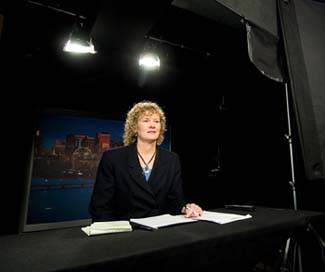 |
 |
| current issue |  |
past issues |  |
send a letter/news |  |
address update |  |
advertise |  |
about us |  |
alumni home |
Features
Out of the BallparkPage 4 of 5
Another player who shared his life story with MacMullan was NBA All-Star Patrick Ewing of the New York Knicks, a shy Jamaican who had immigrated to the Boston area as a super-tall 11-year-old. Her April 1993 Globe story on Ewing explained why he always seemed so sullen when he returned to his hometown:
You don't smile when people scream obscenities at you, or draw pictures of apes hanging from trees with your name spelled out underneath. Why should he be friendly to these people? They threw bricks through the window of his school bus, spraying glass into the eyes of his teammates. They called him a freak.
They called him a nigger.
The story gave a new dimension to an athlete who, she wrote, had been looked upon as a "surly, angry, nasty player with boundless talent but no mercy." When the piece brought MacMullan an award for feature writing from the Associated Press Sports Editors--one of a number of national awards she has received--she remembered her journalism professor's words and thought, Hey, Andy, read this one!
 LIVE:Jackie MacMullan '82 waits to do a live feed for an ESPN segment from a TV production studio.
LIVE:Jackie MacMullan '82 waits to do a live feed for an ESPN segment from a TV production studio.
|
Why do athletes talk so openly with MacMullan? There are certain tricks of the trade, she says, like coming prepared with background information from an athlete's high school coach and hometown buddies. (Thus she learned how a 15-year-old Bruschi corrected a mispronunciation of his name: "No, Coach, that's Tedy Brew-ski. As in, have another.") And she tries to see things from the athlete's point of view. "I remember how scared I was the first time I showed up to practice and there were all these older players," she might say.
Still, much of her success comes simply from her natural ease and warmth. She loves talking with people, hearing stories and telling stories. Sullivan says she's "an incredible conversationalist."
"She's just a nice lady," says retired NBA superstar Charles Barkley. He was drawn to MacMullan from the beginning: "I looked at her as being a minority. I got into [professional basketball] in '84, and back then, 99 percent of the reporters I talked to were men. I wanted to make her feel comfortable. I knew what that would feel like, being the only black guy in the room."
Page: < Prev 1 2 3 4 5 Next >Easy to print version

